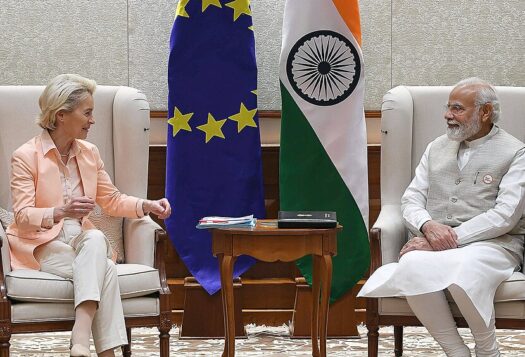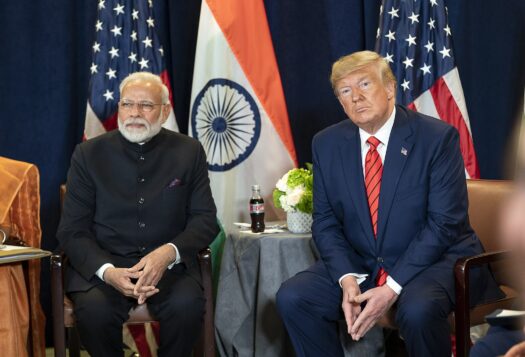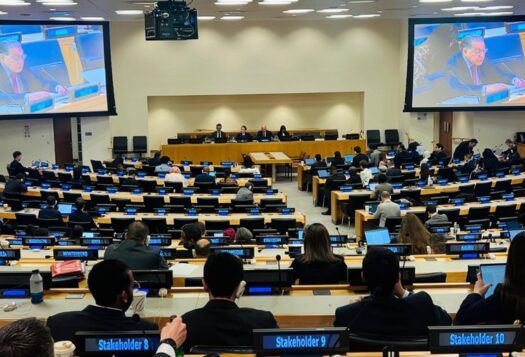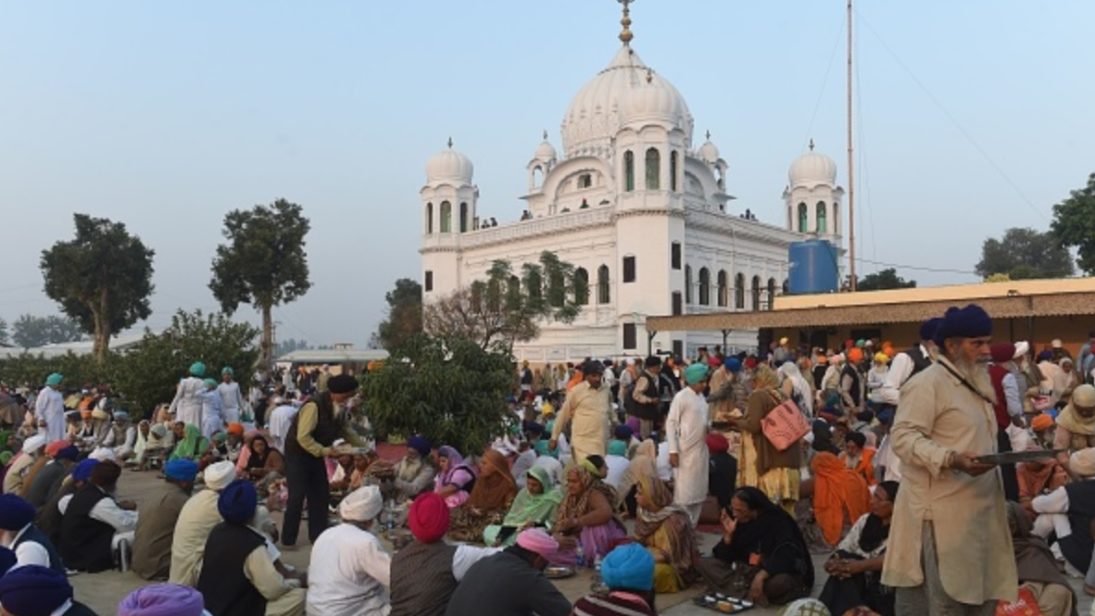
Kartarpur Corridor: Bridging the Punjabs
By: Tanvi Kulkarni
The decision to open the Kartarpur Corridor last week has been a surprisingly positive move by India and Pakistan; surprising because the decision comes during a broken state of bilateral relations, where no official dialogue has taken place since 2012 and diplomacy has repeatedly failed to dampen political and military tensions. In keeping with the Narendra Modi government’s firm stance that terror and talks with Pakistan will not go together, India turned down several overtures this year from Pakistan for bilateral talks, even those from the newly-elected Prime Minister Imran Khan. Given the political sensitivities in a polls-heavy year in India, especially for the ruling Bharatiya Janata Party (BJP) government, no breakthrough in India-Pakistan relations was expected till the general elections in India take place in 2019.
The proposal for opening the Kartarpur route for Sikh pilgrims in India, as a direct, visa-free corridor from the nearest Baba Dera Nanak town in India’s Gurdaspur to the Gurudwara Sri Kartarpur Sahib in Pakistan’s Narowal district, has been on the table from the Indian side for at least two decades, if not more. The sudden revival of the proposal by the Pakistani Army Chief, as conveyed to Navjot Singh Sidhu, cabinet minister in the Indian state of Punjab, in August 2018, and the speed of developments thereafter, also lend to the surprise. The foundation stone for the 4-km corridor that cuts across the International Boundary was laid on the Indian side on November 26 and on the Pakistani side on November 28.
While the Kartarpur success should definitely be seen as a confidence-building measure between India and Pakistan in terms of religious tourism and people-to-people contact, it is also a success of para-diplomacy or sub-national diplomacy.
However, to say that the move marks a definite breakthrough in India-Pakistan relations would be an exaggeration. While the decision seems to enjoy wide political support in Pakistan, Indian officials and political leaders outside Punjab have been perceptibly restrained in the revelry. Nevertheless, the peace corridor must definitely be seen as a positive for Punjab-Punjab ties. For India’s Sikh community, particularly from the state of Punjab, who have made several appeals since 1947 to access their holy shrine, the corridor would be the realization of a dream, especially ahead of the 550th birth anniversary of Guru Nanak Dev in November 2019. It also marks a political success for the governments of the two Punjabs. Since 1999, the political leaders of India’s Punjab, starting from Prakash Singh Badal to Captain Amarinder Singh, have played a crucial role in building Punjab-Punjab ties. Supported by successive regimes in New Delhi, the Indian state of Punjab has been able to build and promote cultural, religious, economic, or business relations with Pakistan’s Punjab province. While the Kartarpur success should definitely be seen as a confidence-building measure between India and Pakistan in terms of religious tourism and people-to-people contact, it is also a success of para-diplomacy or sub-national diplomacy.
This corridor is also expected to open doors for the region’s economic growth and boost the tourism industry on both sides. The World Bank will provide USD 500 million to the Punjab government of Pakistan for restoring nine religious sites, including the Kartarpur gurudwara and two other Sikh sites, and building related infrastructure, which is expected to help attract religious tourists to these sites from all over the world. However, the corridor will likely throw up additional cross-border security challenges for both India and Pakistan, including the fears of radicalization in Indian Punjab through a resurgent Khalistan movement. While India and Pakistan still figure out the optics of the corridor, it is a wait-and-watch period for improvement in Indo-Pak relations.
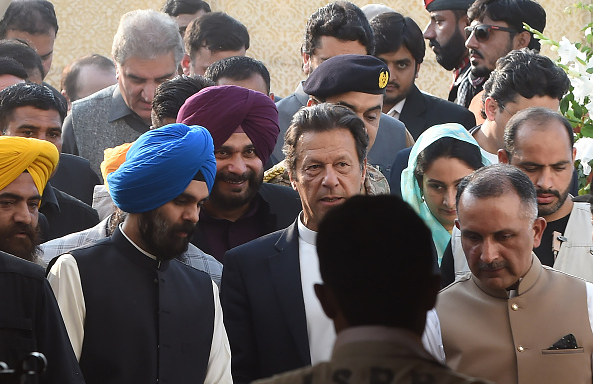
Kartarpur Corridor: An Opening for Dialogue between India and Pakistan?
By: Rizwana Abbasi
Late last month, India and Pakistan finally agreed to establish the Kartarpur corridor connecting the Sikh shrines of Gurdwara Dera Baba Nanak (Gurdaspur district of Punjab, India) to Gurdwara Darbar Sahib Kartarpur (Narowal district of Punjab, Pakistan). It was a long-held aspiration of Sikh pilgrims in India for visa-free access across the border to visit one of their holiest sites, located in Kartarpur. Initiated on humanitarian grounds, the opening of Kartarpur is a positive development amid strained relations between the two states. However, although the Kartarpur corridor has unlocked new avenues for cooperation, meaningful and constructive dialogue for resolution of contentious issues between India and Pakistan remains a distant dream. The complexity of the issue of Kashmir and cross-border terrorism will continue to impede a future peace process between the two countries.
By all counts, Kartarpur offers new opportunities for better relations. Through Kartarpur, religious tourism can be promoted as Sikhs from both sides of the border visit this religious site. People-to-people contact might in turn lead to mitigation of mistrust on both the sides. Sikhs and civil society groups could potentially pressurize the respective governments toward the establishment of further connections such as rail linkages. Thus, economic connectivity between the two Punjabs across the border is a possibility.
However, despite Imran Khan’s genuine interest in building peace with India, chances for dialogue and the commencement of a peace process between the two countries are slim. Khan has been pushing for dialogue with India since he became prime minister in July and even extended an invitation to India to attend the upcoming South Asian Association for Regional Cooperation conference in Pakistan. However, despite agreeing to the corridor, India is not willing to engage with Pakistan until cross-border violence stops in Kashmir, according to Indian External Affairs Minister Sushma Swaraj.
Although the Kartarpur corridor has unlocked new avenues for cooperation, meaningful and constructive dialogue for resolution of contentious issues between India and Pakistan remains a distant dream. The complexity of the issue of Kashmir and cross-border terrorism will continue to impede a future peace process between the two countries.
A number of potential reasons will hamper Khan’s efforts towards opening dialogue. For starters, the Bharatiya Janata Party is focused on the upcoming elections and Prime Minister Narendra Modi does not want to lose his vote bank since anti-Pakistan rhetoric increases possibility of his victory in the coming year. Also, India is busy raising its global profile and regional peace-building with Pakistan is not high on its agenda. Moreover, India and Pakistan continue to talk at each other and not to each other, with India emphasizing cross-border terrorism while Pakistan focusing on Kashmir, and differences on these issues will continue to derail the dialogue process. Finally, Indo-Pak disagreement on the reconciliation and peace process in Afghanistan is another significant impediment on the road to improving their bilateral relations.
The opening of the Kartarpur corridor is certainly a step forward in India-Pakistan relations but it will not pave the way for the resolution of this enduring rivalry. Pakistan and India should aim at maximizing the benefits of this project by promoting religious tourism, interpersonal contacts, and economic connectivity between the two Punjabs and not allow spoilers to politicize the construction of this corridor, laying the groundwork for improvement in relations.
***
Image 1: Arif Ali/AFP via Getty Images
Image 2: Arif Ali/AFP via Getty Images
